第37章
At first the country through which our wanderings led us was hilly and well wooded, the trees being particularly fine, many of them towering up to a height of 150 feet or 200 feet.Our principal food consisted of roots, rats, snakes, opossum, and kangaroo.The physical conditions of the country were constantly changing as we moved farther eastward, and Yamba's ingenuity was often sorely taxed to detect the whereabouts of the various roots necessary for food.It was obviously unfair to expect her to be familiar with the flora and fauna of every part of the great Australian Continent.Sometimes she was absolutely nonplused, and had to stay a few days with a tribe until the women initiated her into the best methods of cooking the roots of the country.And often we could not understand the language.In such cases, though, when spoken words were unlike those uttered in Yamba's country, we resorted to a wonderful sign-language which appears to be general among the Australian blacks.All that Yamba carried was a basket made of bark, slung over her shoulder, and containing a variety of useful things, including some needles made out of the bones of birds and fish; a couple of light grinding-stones for crushing out of its shell a very sustaining kind of nut found on the palm trees, &c.
Day after day we walked steadily on in an easterly direction, guiding ourselves in the daytime by the sun, and in the evening by opossum scratches on trees and the positions of the ant-hills, which are always built facing the east.We crossed many creeks and rivers, sometimes wading and at others time swimming.
Gradually we left the hilly country behind, and after about five or six weeks' tramping got into an extraordinary desert of red sand, which gave off a dust from our very tracks that nearly suffocated us.Each water-hole we came across now began to contain less and less of the precious liquid, and our daily menu grew more and more scanty, until at length we were compelled to live on practically nothing but a few roots and stray rats.Still we plodded on, finally striking a terrible spinifex country, which was inconceivably worse than anything we had hitherto encountered.In order to make our way through this spinifex (the terrible "porcupine grass" of the Australian interior), we were bound to follow the tracks made by kangaroos or natives, otherwise we should have made no progress whatever.These tracks at times wandered about zigzag fashion, and led us considerable distances out of our course, but, all the same, we dare not leave them.Not only was water all but unobtainable here, but our skin was torn with thorns at almost every step.Yamba was terribly troubled when she found she could no longer provide for my wants.Fortunately the dew fell heavily at night, and a sufficient quantity would collect on the foliage to refresh me somewhat in the morning.How eagerly would Ilick the precious drops from the leaves! Curiously enough, Yamba herself up to this time did not seem distressed from lack of water;but nothing about this marvellous woman surprised me.It took us about ten days to pass through the awful spinifex desert, and for at least eight days of that period we were virtually without water, tramping through never-ending tracts of scrub, prickly grass, and undulating sand-hills of a reddish colour.Often and often Iblamed myself bitterly for ever going into that frightful country at all.Had I known beforehand that it was totally uninhabited Icertainly should not have ventured into it.We were still going due east, but in consequence of the lack of water-holes, my heroic guide thought it advisable to strike a little more north.